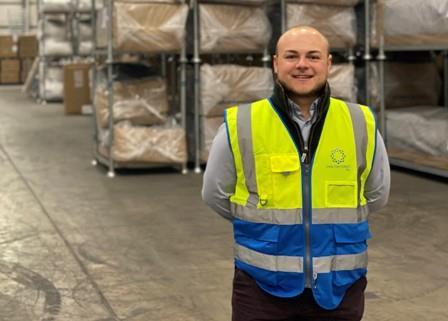
Almost a year ago the country faced its first lockdown and the initial three weeks eventually lasted an unbelievable 14 weeks or so.
During that time the supply chain network of the UK was not only put under immense pressure, it also proved its unswerving resilience as it adapted to the new and ever changing needs of the nation.
Even industry stalwarts will say that they have never seen such demand on the logistics sector as in the past year. A combination of a global pandemic and Brexit, both of which we were woefully under-prepared for, has seen the logistics, freight, warehousing, haulage and supply chain businesses placed under extreme pressure to keep food on shelves and goods being delivered or stored.
Now, as we begin 2021 with a similar raft of challenges as we had in spring last year, here’s how we see the year unfolding and the three things that we think will be critical to our industry.
Increased demand
Retailers at this time of year are typically selling off festive and winter stock and gearing up for the new season and whilst many can continue trading online, there are a good number who don’t have that option or have found that consumers prefer to shop in person rather than online for certain products.
Consignments of new stock are arriving almost daily and with decreased levels of stock turnover it is necessary for companies to find places to store these products.
This is seeing the demand for empty warehouses grow considerably across all areas of the country to support this element of the supply chain and others such as food and drink as eating and drinking habits continue to be entirely home-based.
Agile supply chains
Coupled with the increase in storage is the increase in flexibility for more agile supply chains where needs are based on current demand rather than strategic, cost effective lean supply chains.
A prime example of this is the e-commerce market and how that shifted in 2020 to ensure retailers were still able to trade when non-essential retail was closed. Even towards the end of the year, when non-essential retail enjoyed a period of being able to open, consumers continued with their online shopping.
Now, we are seeing the curve grow once more and businesses who operate in such markets are requiring flexible supply chains to suit them both in terms of bringing goods into the UK, storing them and shipping them to the purchaser.
It’s proved to be a highly complex operation but one which has stepped up to the demand of the consumer and delivered. Agile and adaptable is what is winning in the current climate and it is important that we continue to support customers and each other during this unusual trading period.
Sustainable operations
An increasing number of business sectors are seeking ways in which they can make their operations more sustainable, and logistics and supply chain are no exception.
Packaging reduction or the removal of hard-to-treat packaging from all elements of the supply chain continues as both third party businesses and consumers drive this demand. In addition, businesses are choosing local firms for storage and distribution where possible, reducing product miles and driving efficiencies in terms of cost and time.
Those that are at the real cutting edge of visionary sustainability are seeking new ways to reuse waste, generate energy and we are no exception. Our onsite waste to energy plant will become fully operational in 2021 and will generate enough energy for our Worksop headquarters to become fully self-sufficient.
2021 looks to be another uncertain year for many British business sectors but, by working together and supporting each other, I feel confident that the supply chain sector can continue to be a calming anchor in the storm that we find ourselves in.
Alistair Plant, divisional operations manager, Carlton Forest 3PL













